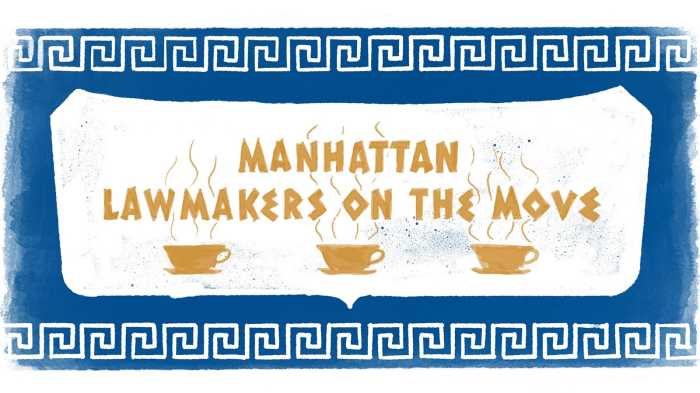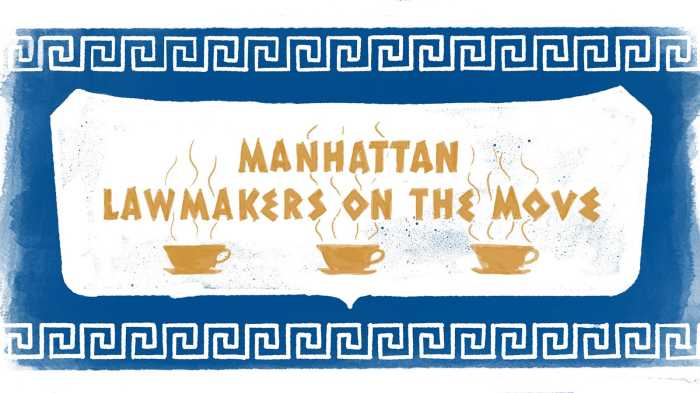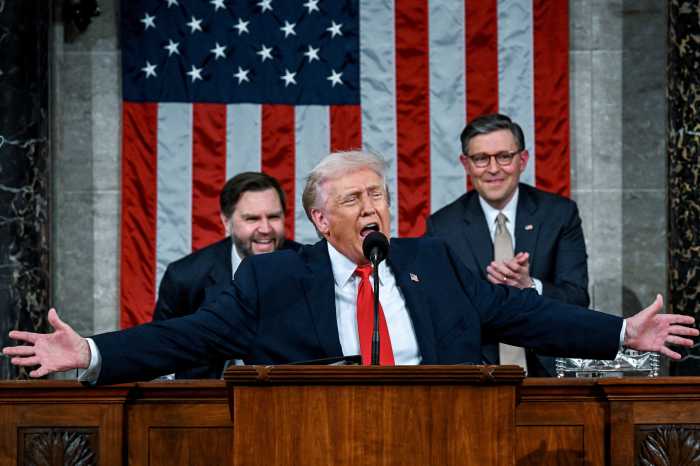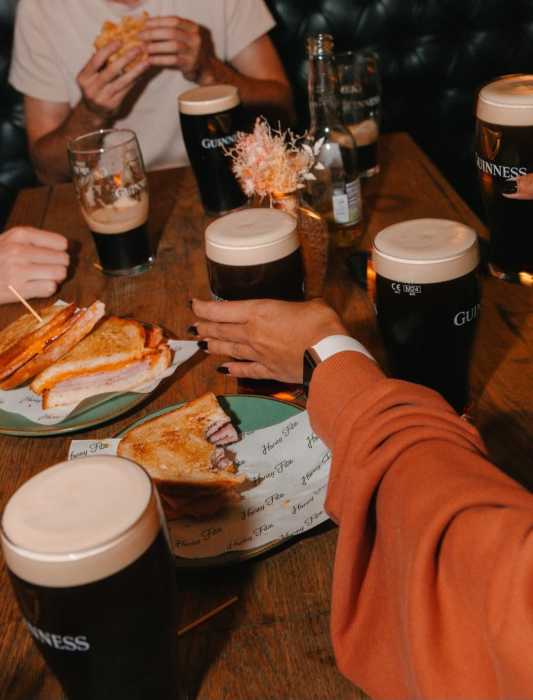The City Council yesterday passed a legislative package to give small businesses and restaurants a leg up as the city readies for some kind of reopening as the coronavirus numbers stabilize.
“Small businesses and restaurants are the heart and soul of New York City and right now, they are hurting. They are paying high fees, getting harassed and are worried about losing their homes. They need help and this small business package is designed to protect them during this pandemic,” said City Council Speaker Corey Johnson (D-Chelsea, Hell’s Kitchen).
This series of legislation hopes to lessen the blow by addressing price gouging, waiving fees, and other inequities that businesses face.
Sidewalk cafe licenses are notoriously expensive and are a lengthy process to get approved, especially if a business is on a street that isn’t zoned as commercial.
City Councilmember Andrew Cohen’s (D-Bronx) legislation suspends sidewalk cafe fees for unenclosed sidewalk cafes (and enclosed sidewalk cafes) until February 28, 2021. Any fees paid already will be backdated to March 1. The bill doesn’t mention any prior rezoning issues for businesses interested in getting a permit.
“This legislation is an important first step towards a safe reopening of NYC’s restaurants with sidewalk cafes prominently figuring into a recovery strategy to support socially distanced dining and expanded seating capacity,” said Cohen.
Cohen said that eliminating burdensome sidewalk cafe fees will provide emergency relief to restaurants that have faced huge financial losses and want some stability when the city reopens.
Mayor Bill de Blasio (D), in his daily briefing yesterday, mentioned the possibility of having more sidewalk cafes within the open street concept. However, he hasn’t nailed down the details yet.
“I’m certainly intrigued and I’ve begun to have this conversation with folks in the restaurant industry. Intrigued with what we could do with more outdoor dining,” said de Blasio when asked. “We’re not there yet in terms of figuring out what that means, how far we could go with it, when we could do it. But it is an appealing idea. It’s an idea that may offer some real options. But I’m always going to be cautious in saying, you know, I don’t want to theorize and raise hopes unduly.”
Another major issue that has plagued restaurants throughout this crisis had been exorbitant delivery costs. For instance, Grubhub charges a restaurant a marketing commission of 20 percent, delivery commission of 10 percent, plus processing fees, tax, and delivery tip which can really stack up during a crisis.
“Mom and pop restaurants across New York City are being bled dry by billion-dollar tech companies. Unfortunately, that relationship isn’t unique to the pandemic,” said Councilmember Francisco P. Moya (D-East Elmhurst, Elmhurst, Jackson Heights, Corona).
Moya sponsored an emergency law that will finally cut some of those costs, by creating a cap on the amount platforms like Grubhub are allowed to charge. The 30 percent commission gets knocked down to 15 percent per order for delivery and 5 percent per order for all other types of charges. Violators face up to $1,000 per restaurant per day.
Additionally, another bill would prevent third-party delivery platforms from charging restaurants for telephone orders that don’t result in a transaction.
“Our city’s local restaurant sector cannot be allowed to go under. During this unprecedented public health crisis, many are struggling just to stay afloat. These bills will go a long way towards creating a fairer playing field that could mean the difference between remaining open or closing their doors and laying off their employees,” said Councilmember Mark Gjonaj (D-Bronx).
Councilmember Carlina Rivera’s (D-East Village, Gramercy Park, Kips Bay, Lower East Side, Murray Hill, Rose Hill) measure offers protections for commercial tenants against harassment or threats, and won’t have their homes or assets taken away if they can’t pay rent.
“My bill will ensure that business owners, should they be forced to walk away or temporarily shutter their stores through no fault of their own, can do so without facing threats to their life savings and personal assets, ensuring that one day they may be able to return and relaunch or create new thriving businesses in our neighborhoods,” said Rivera.
Lastly, city agencies will publish a list of any licenses, permits, consents or registrations that are not covered for renewal by the Mayor’s executive order.
“The COVID-19 epidemic has taken a devastating toll on our city’s businesses, and, sadly, too many of them will not open their doors again,” said Councilmember Steven Matteo (R-SI). “For those that will be able to re-open once they are allowed, the last thing they should have to worry about is filing paperwork or being fined by the city for an expired permit.”


![City Hall [Credit: "Aude" of Wikimedia Commons]](https://politicsny.com/wp-content/uploads/2021/02/Nyc_city_hall_july2006b-e1589477471165.jpg?quality=51&w=1200)





